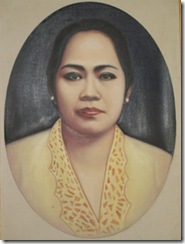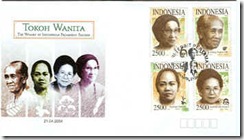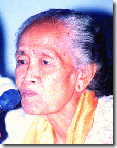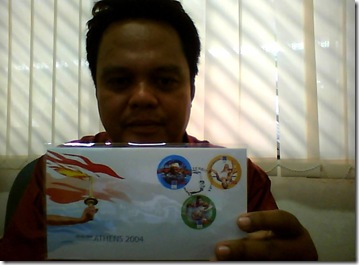 The history of national herbs industry of Indonesia cannot stand apart from role of the oldest and the biggest company of Javanese herbs PT Nyonya Meneer. This company pioneered by Nyonya Meneer who of inherited skills and knowledge to compound herbal tonic. Born in Sidoarjo in 1895 and named Menir, she used to be called Nonie Menir in her child time.
The history of national herbs industry of Indonesia cannot stand apart from role of the oldest and the biggest company of Javanese herbs PT Nyonya Meneer. This company pioneered by Nyonya Meneer who of inherited skills and knowledge to compound herbal tonic. Born in Sidoarjo in 1895 and named Menir, she used to be called Nonie Menir in her child time.
She was grown up and taught household managing skill by her mother. Housekeeping and herbs nurturing was her daily routine job. Education planted by her parents has built a disciplined and creative character on her. At seventeenth, Nonie Menir got married by Ong Bian Wan, a young merchant from Semarang. And she was called Nyonya Meneer since then. Nyonya Meneer entrepreneurship in herbs industry was preceded by the sickness of her beloved husband. His suffering was hardly cured, though various remedial measures had been taken. Finally, she tried to heal him by her own herbs recipe and it was succeeded. The first recipe produced by Nyonya Meneer was jamu Jampi Usus that prescribed for dysentery. After this success, the existence of Nyonya Meneer herbs started to be known by people.
Nyonya Meneer entrepreneurship in herbs industry was preceded by the sickness of her beloved husband. His suffering was hardly cured, though various remedial measures had been taken. Finally, she tried to heal him by her own herbs recipe and it was succeeded. The first recipe produced by Nyonya Meneer was jamu Jampi Usus that prescribed for dysentery. After this success, the existence of Nyonya Meneer herbs started to be known by people.
Equipped of ordinary cooking wares, this family business grew nad expanded the sales to the cities around. And in 1919, Nyonya Meneer made her dreams come true by establishing original Javanese herbs company branded the portrait of Nyonya Meneer in Semarang. In the beginning, she struggled with her family procuring,compounding and selling the products by themselves. Value, that always be stressed to her sons and daughters in business was disciplinary, hardworking and familial relationship. Along with times, her business grew, the customer increased, and it marketing branches were established several towns and even in Jakarta. Aimed at facilitating the customer, the first Nyonya Meneer shop was opened in Jalan Pedamaran 92 Semarang.
Her daughter Nonnie moved to Jakarta in 1940, she opened the firs Nyonya Meneer herbs shop in Jakarta located at Jalan Juanda, Pasar Baru. Initially came from limits and comprehensions, the herbs product entered capital city and spread nationwide. As the business growing, Nyonya Meneer got an idea of depicting of her portrait on the pact. This busted it sales and peaked at high record. Nyonya Meneer legalized its business in a form of family form and in 1952 and changed into limited company in 1977. The size of Nyonya Meneer herbs business was hardly undertaken by themselves, for it needed more workers as well as professional management to cope with its growth.Accordingly, she started promoting her descendants as cadres and sent them business school. After her passing on 23 April 1978, the company was run by her progenies. Since 1991, the CEO of PT Nyonya Meneer was Dr Charles Saerang, the third generation of Meneer family. In recent, PT Nyonya Meneer had been developed in various product innovation, instead of powder, including pill, oil, cream, capsule, and extract capsule. Nyonya Menner herbs products have contributed significantly to people, the nations, and the country as well. The product has been exported to countries such as Malaysia, Philippines, Singapore, Brunei Darussalam, Vietnam, Chinese Taipei, Australia, The Kingdom of Saudi Arabia,Hong Kong, USA, Netherlands, and New Zealand. The inherited spirit of life of Mrs Meneer, has proven that woman could successfully set and guide a business that never though before becomes so big.
 Sandiah also known by Bu Kasur, was born in Jakarta in 1926. She is the eldest of the fifth of Santoso family. She finished her formal education in high school. Soon after graduated, she worked in residency office of Bandung. There, she met Suryono, known as Pak Kasur who became her lifetime couple later.
Sandiah also known by Bu Kasur, was born in Jakarta in 1926. She is the eldest of the fifth of Santoso family. She finished her formal education in high school. Soon after graduated, she worked in residency office of Bandung. There, she met Suryono, known as Pak Kasur who became her lifetime couple later. 





